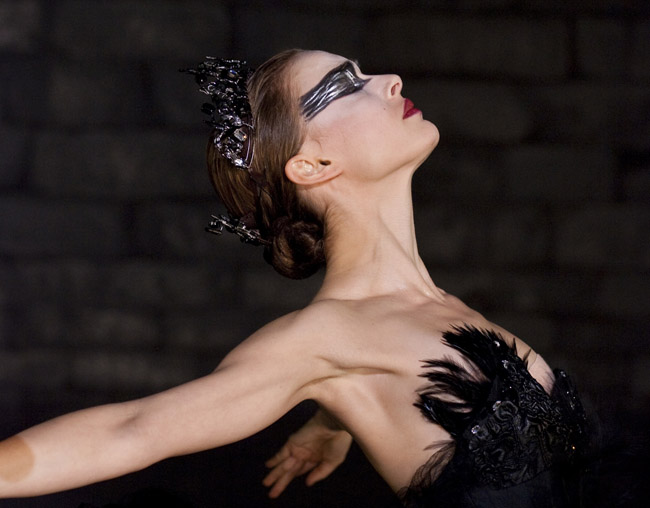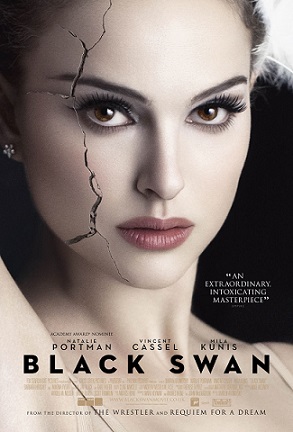
This content has been archived. It may no longer be relevant
 |
 |
Nina Sayers (Natalie Portman) strives for perfection. She is a ballerina who has always been a reliable performer, but too good, too sweet, too innocent. When Beth (Winnona Ryder) retires the production needs a new lead for their production of Swan Lake and Nina really wants the part but her demeanour really is only befitting of the white swan. To get the part Nina must embrace her darker side, find the traits in herself that can turn her into the black swan and give a perfect performance.
As Nina strives to attain perfection she begins to lose control of herself along the way, when Lily (Mila Kunis) joins the production things start to get a little hazy for Nina. The two are so alike but Lily has the edge that Nina wants, nay, longs for. With an overbearing mother at home and an eating disorder Nina starts to lose her control as the Black Swan within her starts to come out both on the dance floor and in her life.
Director Darren Aronofsky originally thought about having this play alongside his last work The Wrestler (2008) but decided that they were two very different films with similar themes that would work best separately. Whilst the parallels are extremely similar (and not just the cement block dressing rooms shared by The Ram and Nina), Black Swan is a much darker affair, still full of passion and devotion to their craft but with the sinister edge and taste of the supernatural that you don’t get in The Wrestler.
It is this black edge that makes the film stand out. We watch as Nina embodies her Black Swan, both metaphorically and literally. There won’t be anyone who doesn’t wince as Nina tries to clean up a broken nail or as she and Beth give each other a facial. The delve into her psyche makes you question if this is reality or Nina’s imagination and the inclusion of a mirror or reflective surface in virtually every scene only adds to the confusion.
Shot, again in a similar vein to The Wrestler, on handheld cameras, the tight angles and over the shoulder shots add claustrophobia and an intimacy to the film that Aronosfsky is famous for. The image really lacks colour and sharpness expect for when Nina is dancing and this only adds to the confusing sense of reality for both Nina and the viewer.
This is more a work of art than a film, some critics found its lack of distinction and darkness too much to handle, but the film begs for repeat viewings. Excellent work from the cast, Portman really shines through and fully deserves her Oscar nominations and Bafta award. Supported by Kunis, Vincent Cassel and Barbara Hershey, all of whom are fabulous, Aronofsky has shown that he can get star turns from his cast which in turn, become five star films, or in this case. Perfection.
